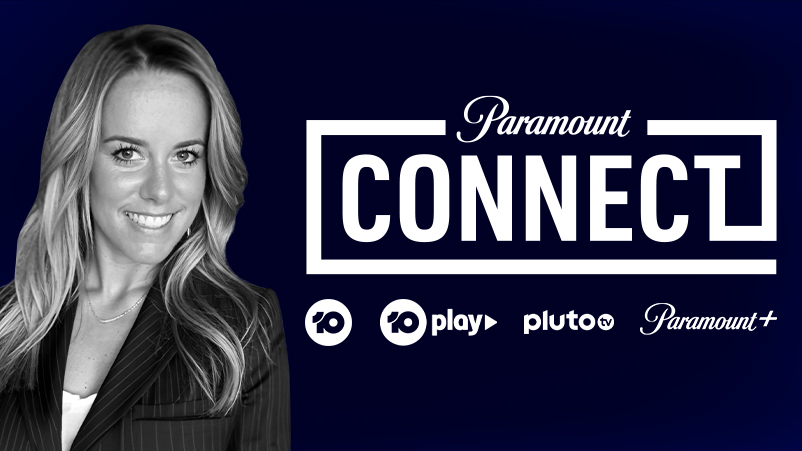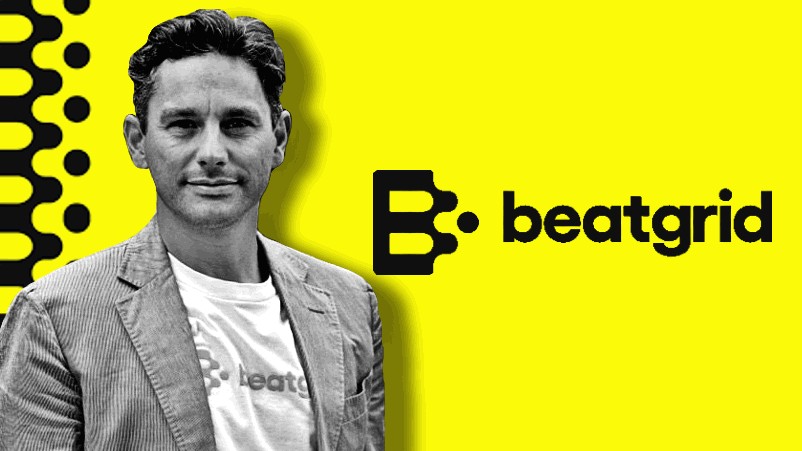'Everything works on paper': Big scalps go as Dentsu ANZ transformation splutters, CEO Patricio De Matteis emerges after 16 months with new plan

After 16 months as CEO of the troubled Dentsu ANZ operation, former Accenture and PwC consulting operative, Patricio De Matteis, has emerged and fronted another restructuring and more rounds of layoffs. Dentsu agency CEOs are out – media boss Danny Bass and Merkle CEO Steve Yurisich included – as a new power posse of three ANZ executives reporting to De Matteis was announced to staff yesterday. Market rumblings already have Bass set to join the expansionist Australian market mix modelling firm Mutinex. Bass and Mutinex CEO Henry Innis would not be drawn, "I don't confirm active or inactive processes we are in," Innis said. Dentsu briefed staff yesterday that Bass and Yurisich would leave the business, along with another 50 jobs at Merkle and iProspect that have been cut in recent weeks.
What you need to know:
- Dentsu ANZ is making another major restructure, converging the Japanese-owned holding company’s capabilities into a single consulting-style model.
- Chief executive Patricio De Matteis says the shift, announced internally on Monday afternoon, is the continuation of the transformation first set in motion by Angela Tangas and responds to the pressure clients are experiencing to “evolve at speed and to do more with less”.
- The move has brought about dozens of redundancies, with the tally of jobs gone under De Matteis’ watch now upwards of 100.
- Dentsu Media boss Danny Bass and Merkle ANZ chief Steve Yurisich are amongst the latest to go, with another 40 roles gone from Merkle several weeks ago, and 10 cut from iProspect Melbourne in February.
- Industry rumblings suggest Bass will be moving on to a new role at market mix modelling firm Mutinex – though neither Bass not CEO Henry Innis would comment on the matter.
- Dentsu ANZ’s new model does away with individual practice CEOs, distilling capabilities into two key verticals: Client Counsel and Commercial, led by former chief client officer, Fiona Johnston, and Product and Practices, headed by former Dentsu Creative chief, Kirsty Muddle.
- Dentsu will retain its eight remaining agency brands: Dentsu Creative, iProspect, Carat, DentsuX, SMG, Cox Inall Ridgeway, TAG and Merkle.
- Rob Harvey will remain in place in New Zealand, and alongside Johnston and Muddle, will report directly into De Matteis.
- There are no more CEOs within agency brands, and market leads will report directly into the executive leadership.
- The latest restructure follows sweeping cuts made to the business in September and December, and adds to dozens of redundancies pushed through by Tangas as part of her efforts to consolidate Dentsu's 25 agency units into five (now eight) core brands.
- While De Matteis insists the restructure is not driven by cost-cutting, it's almost certain the macro economic climate is a significant factor, along with client churn.
- The details are light on how the agency plans to put its new model into action, but De Matteis emphasises that an end-to-end approach will be core.
About 150 people have left Dentsu's ANZ business since CEO Patricio De Matteis landed in January 2023 and after four years of restructuing away from a traditional agency model to a consulting matrix structure of capabilities, the business is yet to fire.
The ANZ unit was singled out in a recent Dentsu earnings announcement as among the global network's top performers for negative growth. Still, De Matteis is pursuing the consulting approach to delivering capabilities and services with fewer brands, and now, no agency CEOs.
In more changes and job cuts announced to staff yesterday, Dentsu media chief Danny Bass and Merkle ANZ CEO Steve Yurisich are amongst the latest to go, along with circa 50 roles that have been slashed between iProspect and Merkle in recent months.
Dentsu's executive team will now be formed by Bass' media lieutenant Fiona Johnston, who becomes Client Counsel and Commercial lead for the group and Dentsu creative boss Kirsty Muddle, who takes on a broad remit as the lead on 'Product and Practice' business streams – media, creative, data and digital included. New Zealand chief Rob Harvey retains his role, and all three report into De Matteis – who said in a statement the changes were inevitable given the pressure facing client brands to do more with less.
But there are scores of former Dentsu execs with blistering scorecards over the sweeping transformation program that's been rolling out since former Dentsu ANZ CEO Angela Tangas started the process after her appointment as CEO in 2019, replacing Henry Tajer. Tajer hit roadblocks further up the Dentsu international hierarchy when warning of the troubled state of the business after joining. At the time of Tangas' promotion to Dentsu UK and Ireland CEO two years ago, Dentsu said the ANZ business had posted three years of consecutive growth, that organic growth was at circa 13 per cent and employee engagement was up 12 percentage points.
It appears those healthy numbers have quickly hit a wall and there is speculation more staff are preparing to exit on their own volition.
Bass, whose media remit was across Australia and New Zealand and who is said to have challenged the merits of yesterday's overhaul, is set to join market mix modelling outfit, Mutinex, which is pushing into the US market. Bass was an early holding company proponent of Mutinex's SaaS econometrics platform at Dentsu, striking a partnership at the start of last year. Both Bass and Innis declined to confirm the conjecture – when asked by Mi3, Innis said: "I don't confirm active or inactive processes we are in."
The current restructuring was preceded by a deep round of cuts made around Christmas period, when De Matteis first alluded internally to the local implications of the global ‘One Dentsu’ strategy in an all-staff email sighted by Mi3.
According to insiders, that strategy, backed by Dentsu HQ in Tokyo, has seen a number of international markets slow to deploy while Australia is seen as the most aggressive of any global territory to adopt the new model. While the global structure is the “north star” for Dentsu’s local transformation, De Matteis said in a statement that the local structure caters to the “distinct aspects” of the ANZ business.
New model
De Matteis positioned the new model as a continuation of the transformation set in motion by Tangas, describing the latest restructure as “another important step in our multi-year strategic plan”.
“Since 2022 Dentsu has been working towards a simplified and integrated global offering, driven by a singular mandate – to put clients at the centre of our operating model.”
That chimes with what Tangas told Mi3 in November 2022 as she swapped ANZ to run Dentsu's UK and Ireland operation: “From every conversation that we're having with clients … they're recognising that given the pace of change in the consumer environment, given the pace of change in terms of technology advancement, they're recognising that there's a real convergence here now.”
De Matteis said that pressure continues, with clients being pushed to “evolve at speed and to do more with less”. Meanwhile, many are consolidating agency partners.
“We are making these changes to remove any barriers to siloed thinking or collaboration”, he said. “By rethinking around how we can work more efficiently, we are better positioned to help [clients] deliver at the pace they need and the consumer expects, with solutions and products that prepare them for now and what’s next.”
At the crux is the creation of two new “connected areas of expertise” that will encompass the entirety of Dentsu’s converged capabilities across strategy, data and tech, creative, media and customer experience management (CXM).
These two verticals have been coined ‘Client Counsel and Commercial’, led by former chief client officer Fiona Johnston, and ‘Product and Practices’, which will be headed by former Dentsu Creative chief, Kirsty Muddle.
Muddle will hold onto her former creative remit and take on the media and customer experience management units formally led by Bass and John Riccio (as CEO of Merkle).
De Matteis pitches the structure as a “single gateway” for clients’ needs, though eight remaining agency brands will remain in market.
“Our brands in Carat, iProspect, DentsuX, SMG, Merkle, Dentsu Creative, Tag and Cox Inall Ridgeway will continue to be the backbone of our focus and of Dentsu,” per De Matteis. “Our agency brands fuel our Dentsu brand, and that won’t change.”
In an approach reminiscent of Publicis Groupe’s ‘Power of One’ model, it is understood Dentsu will pitch for business as both a single entity and as individual brands.
It’s understood that sports and entertainment marketing unit MKTG will also remain in market, but with a direct reporting line to Japan.
Meanwhile Rob Harvey will remain as CEO in New Zealand, where he’ll be charged with bringing “Dentsu’s cross-Tasman capabilities even closer together”.
Harvey, Johnston and Muddle will make up the group's new executive leadership and will continue to report directly into De Matteis.
With the exit of Yurisich, Dentsu’s agency brand CEOs have been completely phased out, with market leads understood to be reporting directly into the executive leadership.
Pain vs. gain
De Matteis stated that the decisions are not driven by “cost saving” although the constant bleed of clients and talent by the Japanese-owned holding company locally and globally has been painful.
"Dentsu is “really struggling right now,” Madison and Wall analyst Brian Wieser in February told Mi3.
"I think the changes followed from the – what seemed to me very abrupt – departure of [former CEO] Wendy Clark. It all kind of fell apart right then and there.” After that, “you saw a lot of people leave”. In January its global CFO joined the exodus.
“The fact that there is instability in management, [with] so many people leaving means that if you're a client, you don't know who's going to make sure your problems go away,” said Wieser. “And the people who've come in, you don't know them well enough to know that they know your problems well enough.”
On the flip side, "It’s hard to imagine it getting any worse. Their comparables get easier, that’s for sure,” per Wieser. “They definitely have plenty of very, very, very capable people ... So [Dentsu] surely has a potential to return back to normal growth."
While Dentsu is going through "growing pains, or shrinking pains" in collapsing its brands, "that doesn’t mean it’s the wrong strategy," said Wieser, "and you could argue they are better off than the alternative”.
The alternative being: “Keeping a lot of different agency brands, hundreds of people with a CEO title and thousands of staff who work for those people – the cost structures are higher, the politics are more significant. The bureaucracy can make it harder to execute on changes, to evolve and adapt to the market. So there's definitely a lot of advantages to the serious consolidation we've seen with Publicis, Dentsu and Havas,” said Wieser. “We have not seen anywhere near as much as probably needs to happen at WPP and Interpublic."
Will Dentsu pull it off?
There are challenges facing De Matteis on every front, including mixed signals on his impact since joining Dentsu ANZ and who ultimately has charge to make decisions under the new centralised structure.
“Everything sort of works on paper. No-one is clear on true reporting lines and who looks after what,” said one executive familiar with the new structure.
"There's a lot of cost saving attached to this move, no question," said another. "Only Dentsu Japan has gone as hard on this model as Australia – no-one else has done it."
Others say De Matteis spent six months earlier last year leading high-level sessions on "big bet" strategies, only to end up in deep job cuts last year and more this week, accompanied by a different operating structure.
De Matteis, who is yet to give a public address or media interview since joining, said in a statement he was optimistic about the way forward, if light on the detail.
When asked about the kinds of briefs the agency would be targeting, he pointed to the end-to-end capabilities of the new model.
“We fundamentally believe the new evolved model allows clients to partner with us for growth and the creation of more end-to-end solutions and experiences, leveraging the unique power of our reputable brands cross-disciplinary teams.”
De Matteis says the move is not about Dentsu, but for its clients and partners.
“We are committed to embracing client-centricity at the core of everything we do and the decisions we make," he said. "This is all about bringing the creative strengths of our business together in new and innovative ways. Generating new ideas, new ways of doing things, creating new media opportunities and using the power of technology, data and platforms to help businesses and brands scale. “
“I am incredibly proud of what Dentsu has achieved to date and appreciate the efforts our team have put in. I’m excited to see Fiona, Kirsty and Rob step into new, expanded roles to lead this change and shape the impact we can have on a client’s business. Dentsu has long had the talent, expertise and knowledge in the business, this change is about making sure we bring all of this capability right to the very forefront of our client’s businesses.
In the end De Matteis said he "strongly" believed this was "the right model for us and our clients, one that enables our long-term and sustainable growth in the rapidly developing ANZ market.”
Now to the growth bit.
Key dentsu ANZ exits
September 2023: At least 40 roles cut from across dentsu ANZ’s business due to macroeconomic conditions. Others understood to have exited the business at this time include:
- Carat’s chief investment officer, Craig Cooper
- dentsu ANZ chief product officer, Richard Pook
- dentsu ANZ Head of Brand Marketing Linda Fagerlund
- dentsu Head of Digital Delivery, Louisa Lewis
- Chief creative duo Mandie van der Merwe and Avish Gordham exit to take up co-chief creative officer role at Saatchi & Saatchi (Ben Coulsen appointed as their replacement)
December 2023: Pre-Christmas redundancies impact:
- iProspect Melbourne managing director, Paul Murphy
- dentsu ANZ group chief operating officer, Benjamin Joyce (the ANZ operations are now headed by former Accenture Song director of operations, Jason Jarret)
- Ben Shepherd also resigns one year into his tenure, finishing up his role in March to become CEO of independent publishing business, Schwartz Media. It is understood that his role may also have been on the chopping block, with a similar title within Dentsu’s Carat put on the table prior to his exit.
February 2024: 10 roles cut from iProspect Melbourne.
April 2024: 40 roles cut from Merkle. Senior redundancies made impacting:
- dentsu Media CEO, Danny Bass
- Merkle ANZ CEO, Steve Yurisich
Additional APAC redundancies
October 2023: Sydney-based APAC chief trading officer, Michael Bass, made redundant.
December 2023:
- Sydney-based Merkle’s APAC CEO John Riccio (formally ANZ chief)
- Dentsu Creative APAC chief, Cheuk Chiang


